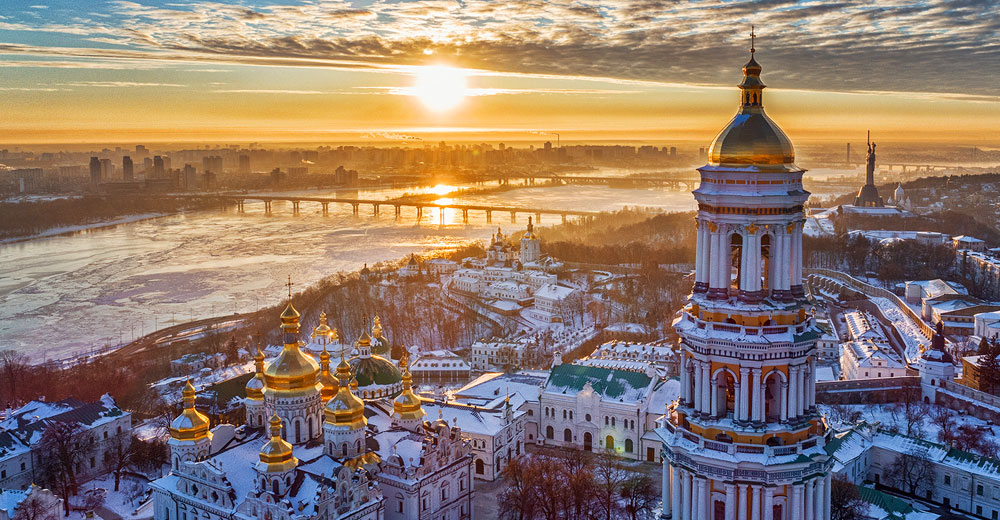Facebook, Twitter, and Google have made moves to prevent their platforms from being weaponized by purveyors of misinformation about the crisis in Ukraine.
Meta, Facebook’s parent company, has announced a new special operations center staffed by experts, including native Russian and Ukrainian speakers, to monitor the social network 24/7 to respond to issues in real time.
The company also added features in Ukraine and Russia to help users protect the information in their accounts.
In addition, Meta stated it’s taking extensive steps to fight the spread of misinformation by beefing up third-party fact-checking in Ukraine and Russia, providing more transparency around state-controlled media outlets, as well as prohibiting ads from Russian state media and demonetizing their accounts — a move that resulted in the Kremlin partially restricting Facebook access in Russia.
That kind of restriction can be a mixed bag for both Facebook and Russia, maintained Julian Sanchez, a senior fellow at the Cato Institute, a public policy think tank in Washington, D.C.
“It can make it harder for accurate information to circulate, but also makes it more obvious how desperately Russia is scrambling to control what its population sees about the war,” he told TechNewsWorld.
Social media companies have to walk a fine line between restricting misinformation and remaining viable in authoritarian countries, observed Karen Kovacs North, director of the Annenberg Program on Online Communities at the University of Southern California in Los Angeles.
“We don’t want authoritarian governments to shut down access to social media because social media and digital media are where people in those countries get news other than that provided by their governments,” she told TechNewsWorld.
“There’s always the threat that if the platforms are too harsh against the governments,” she continued, “then the governments will shut down access, and then all of the media will be controlled by the governments.”
Twitter Suspending Ads
The situation big tech companies find themselves in is a complicated one, added Richard Ford, CTO of Praetorian, a cybersecurity and compliance company in Austin, Texas.
“We want technology to support free speech — that’s important,” he told TechNewsWorld. “We also want technology to prevent abuse of this right to free speech. These systems should not provide carte blanche for governments or nation-state actors for the purposes of propaganda and disinformation.”
“Moreover,” he added, “once you start moderating content on a platform, there’s a tendency for that to make you responsible for the content you do allow, and again, things get complicated.”
Twitter, too, announced steps to protect its users during the crisis. In a series of tweets, it announced it was actively monitoring for risks associated with the conflict in Ukraine, including identifying and disrupting attempts to amplify false and misleading information.
“We’re proactively reviewing Tweets to detect platform manipulation (or other inauthentic behavior) and taking enforcement action against synthetic and manipulated media that presents a false or misleading depiction of what’s happening,” it continued.
The company also stated it was actively monitoring vulnerable high-profile accounts, including journalists, activists, and government officials and agencies, to mitigate any attempts at a targeted takeover or manipulation, and it was temporarily pausing advertisements in Ukraine and Russia to ensure critical public safety information is elevated, and ads don’t detract from it.
Google Suspends Map Features
Meanwhile, YouTube, which is owned by Google, announced it was preventing some Russian companies, including state-operated news outlet RT, from making money off videos posted to the streaming video service, as well as restricting access to RT and some other channels in Ukraine.
In addition, Google suspended some live traffic features in its Maps app in Ukraine. “Google’s restrictions on RT and Maps are likely to have the most immediate practical effect on the Russian campaign,” said Charles King, the principal analyst at Pund-IT, a technology advisory firm in Hayward, Calif.
“The action on Maps should bolster the efforts of Ukrainians on the ground who have been removing road signs and other information to confuse the invading Russians,” he told TechNewsWorld.
“It’s gratifying to see Google, Twitter, Facebook, and other companies moving with urgency, but I expect it will be a while before we know how well their efforts are working,” he said.
“In any case,” King continued, “it’s better than the hand-wringing and thumb-twiddling we’ve seen over the past few years as their platforms have been used to spread misinformation.”
Ads for Access
Sanchez asserted that the steps platforms have taken thus far to combat misinformation seem relatively modest.
“Several have demonetized Russian state-sponsored media, but the whole point of being state-sponsored is that you’re not relying on ad revenue to keep the lights on, so that by itself probably doesn’t have much effect on the propaganda flow,” he said.
However, North explained that Russian misinformation mavens use advertising for more than making money. “It’s very hard to infiltrate a social group on a network because it’s usually friends and acquaintances,” she said, “so the way we’ve seen people infiltrate is by buying ad space and then post stories that fuel polarization as if they were news.”
“By shutting down the opportunity to buy ad space, they’re shutting down the opportunity for various entities to put in highly targeted misinformation,” she observed.
North added that social media companies are making efforts to identify organizations that are providing easily identifiable misinformation and shut down those accounts.
“But most of the government propaganda hasn’t been shut down,” she continued. “That goes back to the fine line being walked by the platforms. They’re allowing governments to have their space and speak their mind because if they’re cut off, they will cut off their citizens’ access.”
Starlink Offered to Ukraine
Another big tech player coming to the aid of Ukraine is Elon Musk. He’s activated his Starlink satellite internet service over the country and has begun sending the hardware citizens will need to access the system.
Starlink — here. Thanks, @elonmusk pic.twitter.com/dZbaYqWYCf
— Mykhailo Fedorov (@FedorovMykhailo) February 28, 2022
“Musk’s offer to bring Starlink online in Ukraine is intriguing and could be quite helpful unless the Russians can use it themselves or have a way to jam the service,” King observed.
While Musk’s move is a nice gesture, Sanchez was dubious about its practical impact in the short term.
He explained that to connect to the service, a clear line of sight is needed to the satellites — which isn’t a given in urban areas where shelling is producing smoke and kicking up debris — and, even more importantly, a Starlink terminal is needed, which are in short supply in Ukraine.
“Under current circumstances,” he said, “getting a lot more terminals into the country and distributed quickly seems unlikely to be feasible. So, this may make it harder to completely cut off internet access, but in the context of this current crisis, I doubt it will make much difference to whether the general population is able to get online.”
“Taking a longer view, however, having satellite internet infrastructure in place certainly makes it harder for invaders or authoritarian regimes to rapidly disrupt connectivity,” Sanchez concluded.

























































